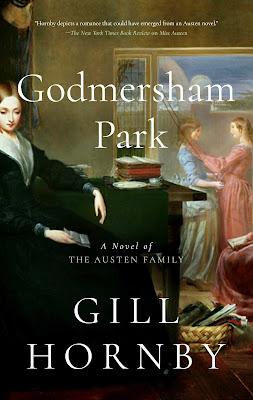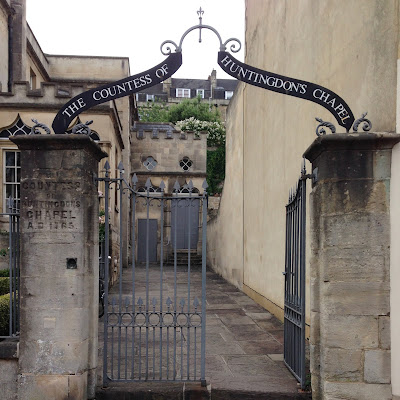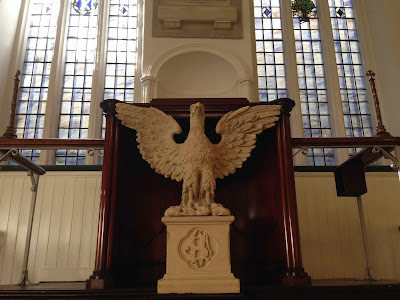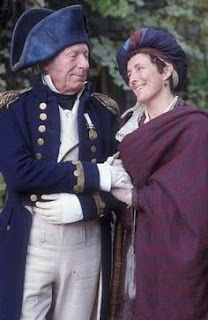Thank you so much for the opportunity for a stop here at So Little Time… on my blog tour for Preludes: A Modern Persuasion Improvisation.
Preludes is a modernization of Jane Austen’s fabulous novel Persuasion, which (please don’t tell anyone) is my favourite, even more than Pride and Prejudice. I mean, it’s hard not to love Lizzy and Darcy, but there is something particularly heart-tugging about Anne Elliot and Frederick Wentworth’s eight-year separation, and the deep love they have that lets them find each other again with the maturity and commitment that the intervening years have given them. And that letter—we’ll forgive anyone almost anything if he can write a letter like that. “You pierce my soul…” How does one beat that?
I have moved the story into the present, and have given Anne and Fred new careers. Anne is a successful composer with a widely acclaimed move score to her name. Fred is an orchestra conductor who has an international career. Eight years after their break-up, Fred has just been appointed principal conductor of the orchestra where Anne is the composer-in-residence, and they must work closely together on some special projects.
But, of course, Anne and Frederick are only two characters in Jane Austen’s rich universe, and today I’d like to talk a bit about some secondary characters and how they appear in my book.
Admiral and Mrs Croft
In Austen’s novel, Admiral and Sophia Croft lease Kellynch Hall, the Elliots’ ancestral home. Mrs. Croft is Frederick Wentworth’s
sister, and when he comes visiting, he and Anne are thrown together again. The Crofts really take to Anne, and almost adopt her as a sort of cousin or niece, giving her more genuine affection than she receives from her blood relatives.
My Crofts are not related to Fred, but know him, and are instrumental in forcing our two star-crossed lovers together before their work commitments would require it. Sophia is Anne’s best friend, the one who drags her out of her cocoon and force-feeds her cheesecake and pulls out all those long-buried secrets. I’d love a friend like Sophia. Especially the cheesecake part.
Mr. Elliot
In Persuasion, William Elliot is Anne’s cousin, and heir to her father’s baronetcy. There is some bad history between him and
Anne’s father, Sir Walter, so it comes as something of a surprise when Cousin William starts playing nice right around the time Anne arrives in Bath. He is supposed to be courting Anne’s sister Elizabeth, but he is much more taken with Anne, it appears!
Again, I’ve changed William’s role a bit to fit in with the modern setting of Preludes. I’ve also changed his name, since he is not a cousin but a new acquaintance. But, in deference to the man who wants to be a baronet, I’ve named him William Barnett. Now he is a new member of the orchestra’s board of directors, a handsome businessman with a successful land development company and a passion for the arts… and artists! When he starts flirting with Anne, a lot of people start to see her in a different light.
Louisa Musgrove
In Austen’s novel, Anne’s sister Mary is married to Charles Musgrove. Louisa is Charles’ sister, and for a while it looks like she and Frederick will end up together. She is young and energetic, quite decisive and rather impetuous, exactly the things Anne was not, which led to the break-up eight years ago.
Once more, I’ve changed the nature of the relationships. Louisa isn’t related to Anne’s family at all, but she is a musician in the orchestra. She is attractive and spunky, with eye-catching earrings and jewel-toned hair, and she definitely has her eye on Fred. Anne is convinced they’re an item; after all, they’re photographed together all the time, their pictures in the newspaper and all over social media.
Captain Benwick
Another of Austen’s characters with a heart-breaking backstory
is Captain James Benwick, one of Frederick’s fellow naval officers. He was engaged to be married but wanted to wait until he earned his fortune so he could afford a family. In the meantime, while he was at sea, his betrothed took ill and died, and poor Captain Benwick spends a good deal of time moping around and reading melancholy Romantic poetry.
I admit to a soft spot for Captain Benwick, and my version of him is one of my favourites in my novel. I’ve renamed him Benjamin James, and his fiancée left him for another man. He is an investigative journalist and poet who comes to mope in his friend Fred’s apartment for a few months. As in the original, he and Anne hit it off, and Ben’s decisions change Anne and Fred’s future.
Intrigued yet? I hope so!
Here is an excerpt from Preludes, where Anne and Ben first meet.
~ ~ ~
Excerpt
Ben was waiting at the coffee shop when they arrived. He had taken a table in the far corner and sat with an empty cup in front of him, peering into his tablet. He turned the device off when Fred called his name and set it face-down on the table before standing up to meet Anne.
Fred made the introductions. Benjamin James was English, from York, and he sounded the part. If Anne were later asked to describe him, she would have fumbled for words, because physically, in almost every way, he was average. Average height, average build, neither pale nor dark, neither handsome nor plain, and with no distinguishing characteristics or marks.
His garb and deportment, however, were another story. His hair was long, not quite to his shoulders, and loose, with a sweep that fell over his face. He would push it back with his whole hand, only to have it flop forward over his eyes again a moment later. He was wearing black jeans, despite the hot late summer weather, and a loose black linen shirt—almost a tunic—that was buttoned to the neck and at the wrists. There was something about the intensity of his gaze, the studied melancholy of his expression, that put Anne in mind of some tortured poet from ages past. Would he have been a Romantic-with-a-capital-R back in the nineteenth century? One of Lord Byron’s set, all angsty and passionate about passion, with a flair for the dramatic and an eye for the ladies?
Despite the air of gloom that hung over him, he was a personable enough fellow. He had studied both art history and international relations before moving into journalism as a career, and seemed ready enough to talk about his experiences.
“I spent some time as a foreign correspondent in South Africa,” he explained, “before moving to freelance. I do investigative stuff. You know, the sort where I follow a paper trail to its bitter end. There are a few politicians and businesspeople out there who do not like my name very much.”
He pushed the curtain of hair out of his face again. “I was looking into some monkey business with an Italian company once a few years back and decided I liked the place so much that I wanted to stay. Since I’m not tethered to an office, I did exactly that. I stayed in Rome. My Italian is reasonable, good enough for the necessaries. Not as good as Frederico’s, mind you, but good enough.”
…
Anne asked after Ben’s poetry. Rhythm and cadence were part of both of their vocabularies, after all.
“I used to write about my travels, the places I’ve visited.” The gloomy face was back. “There is so much beauty in this world, but also so much pain. And too often, the two are juxtaposed rather too starkly for comfort. Recently, however, I find the words will not come. My talents were adequate for other people’s agony, but not, it seems, for my own. I am a poor sort of artist who cannot come to terms with his own psyche.”
Anne made a sound that she hoped was sympathetic and understanding. What was she to say? Fortunately, Ben did not need much encouragement to tell his tale of woe. This, at last, was what Fred had alluded to before.
“I don’t want to bore you with the details, but, well, I am not quite myself these days. You see, I was engaged to be married to a wonderful woman. At least, I thought she was wonderful. She was Italian, but had studied in Australia and had perfect English. She was beautiful, intelligent. She was my muse. Was she not lovely, Frederico?”
Fred murmured his agreement. “Indeed. Claudia was very attractive.”
“And smart and witty, and so funny.” Ben gave a great sigh that all but echoed off the coffee shop’s high ceilings. “She travelled with me for some of my assignments, where it was safe. She was everything to me.” He lapsed into silence. Anne could all but see the grey fog gather around his head.
She had to ask. “What happened?”
Another deep, shuddering sigh. “We were engaged to be married, as I said. Everything seemed perfect. Then I accepted a commission for a story in central Africa. It was riskier than anything I had done before, and I told Claudia I wasn’t comfortable with her joining me. She was an artist. I do have a thing for artists, I admit. She could work anywhere, and she begged to come along, but in the end I refused. I could not risk her safety. And so off I went.” The grey clouds above his head intensified with his long sigh.
“But while I was chasing my story, it turned out that she was chasing some new fellow who came into her gallery one day. And when I got back, she had moved out.”
~ ~ ~
Uh oh… is Ben going to turn his eye to Anne? Will Fred get jealous? And what about William, who is hanging around as well?
Their stories are all in Preludes: A Modern Persuasion Improvisation. I hope you enjoy my take on this classic novel.






.jpg)












